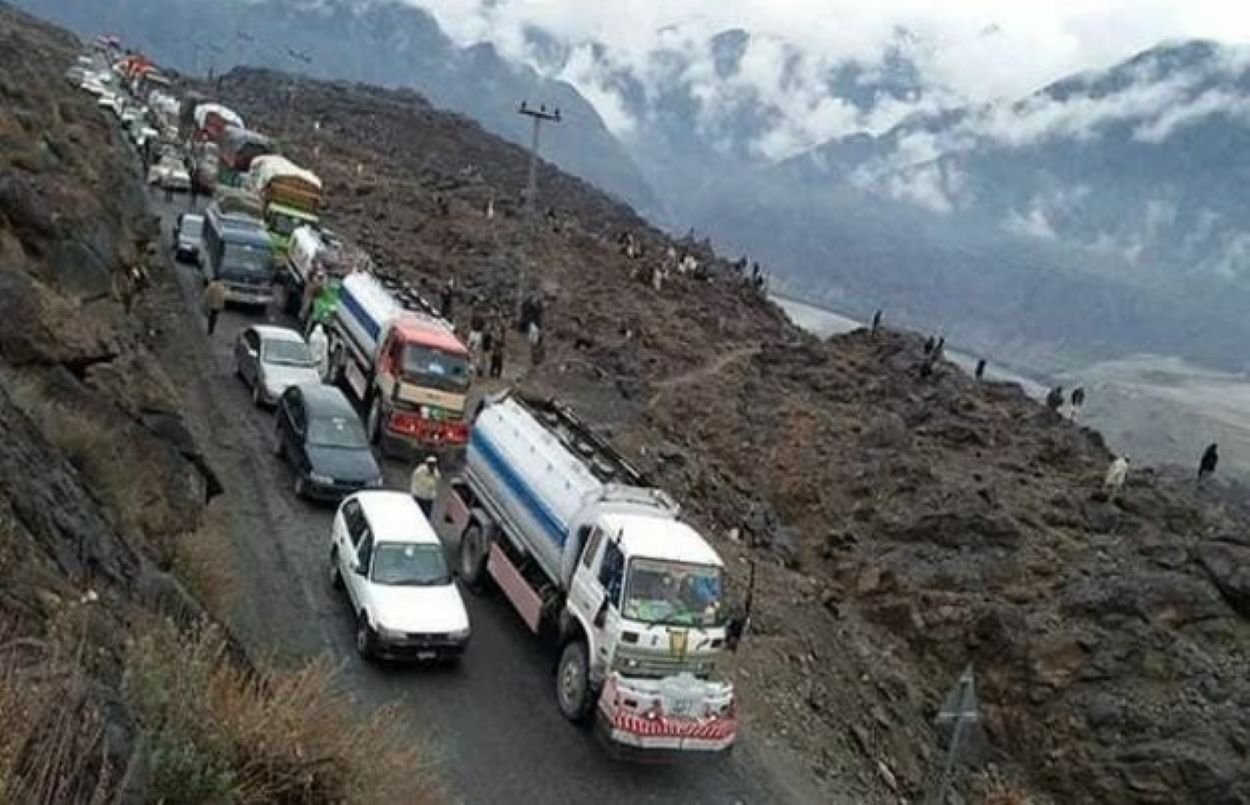Protesters have taken to the streets, obstructing the Karakoram Highway in various regions, including Kohistan and Gilgit Baltistan.
Protesters’ grievance stems from the lack of compensation for lands appropriated for the Diamer Bhasha dam project. The demonstrators, consisting largely of residents affected by the project, have declared an indefinite continuation of their protest until full compensation is received. “Our lands have been taken, and our lives disrupted. The protest is our last resort,” stated one of the protest leaders.
Stranded Travelers Amid Highway Blockade
The repercussions of the blockade are being felt strongly among travellers and transporters. Many passengers travelling between Rawalpindi and Gilgit Baltistan are stranded as the highway remains impassable. In response to the escalating situation, long lines of cars and other vehicles have formed, particularly in areas near Gilgit Baltistan and adjacent to Rawalpindi, creating significant travel disruptions and logistics challenges. Despite the inconvenience caused, protesters have shown a sense of civic responsibility, vowing to allow ambulances and other emergency services vehicles to traverse the blockade.
Diamer-Bhasha Dam Project: A Controversy Unfolding
The contention surrounding the Diamer-Bhasha Dam, an under-construction gravity dam on the River Indus, originates from the land acquisition process. Reports indicate that the government has acquired approximately 32,073 acres, constituting around 90 per cent of the necessary land for the project, with promises of fair compensation to the affected parties. However, the current unrest suggests a significant gap in the compensation delivery, sparking widespread protests. The dam between Khyber Pakhtunkhwa’s Kohistan district and Gilgit Baltistan’s Diamer district marks a critical juncture in the region’s development and resource management. Yet, its progress is controversial, highlighting the complex balance between infrastructural advancement and residents’ rights.






